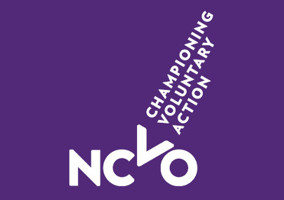Charities’ income from the general public has dipped for the first time since 2008/09, according to research published today by NCVO.
According to the UK Civil Society Almanac 2019, the UK charity sector’s annual income has grown to more than £50bn for the first time, increasing by 2 per cent year-on-year to £50.6bn in 2016/17.
The report says this growth is due to increases in grants and investments, which account for £588.8m and £602.6m of the sector’s income respectively.
However, the sector’s largest sources of income, from the public and government, have both dipped slightly to £22.9bn and £15.8bn respectively.
Charities’ spending also increased in 2016/17, with expenditure on grants increasing by 5 per cent to a new record high of £7bn.
Some 57 per cent of charities’ grant-making stays within the sector, with the majority of this going to international development organisations.
The sector’s net assets also grew by 4 per cent to £131.2bn in 2016/17, marking a new record high, mainly due to strong investment performance.
Total liabilities also reached their highest levels of £22.4bn, rising sharply by 12 per cent, due in part to pensions costs increasing by 55 per cent to £3.2bn.
Meanwhile, the number of people working in the voluntary sector fell slightly to 865,916.
More £100m plus charities
The number of organisations with more than £100m has grown from 45 to 51 during the year, now accounting for 0.03 per cent of all organisations and for 22 per cent of the sector’s total income.
There are now 166,854 registered charities in the UK, a similar amount to the previous year, 82 per cent of which have an income of less than £100,000.
In 2016/17, the sector contributed a total of £17.1bn, measured by gross value added, to the UK economy. This is equivalent to the GDP of a small country such as Honduras.
Meanwhile, formal volunteering was valued at £23.9bn, a slight rise on the previous year.
'Grant makers should take note'
Karl Wilding, director of public policy and incoming chief executive at NCVO, said grant makers could be the key to distributing the sector's growing assets to smaller charities.
He said: "The sector's income as a whole is still growing, which is positive, but it’s at a slower rate than we’ve seen recently. And it’s important to note the factors driving growth, assets and legacy income, are less likely to be things small charities have access to.
"Grant makers should be especially conscious of this, as they are a key way of distributing the proceeds of asset growth to those organisations which are asset poor. Greater collaboration, simpler access to grants and proportionate reporting requirements are a few examples of what will help here.
Wilding suggested the dip in money from the general public was due to charities making efforts to comply with new data protection standards.
He said: "The drop in public income reflects other findings we’ve seen and anecdotal evidence. Clearly lots of organisations were adapting their fundraising strategies at this point in time, preparing to meet higher data-protection standards, and doing a lot of internal work rather than launching donor-recruitment campaigns.
"I’m hopeful that re-focusing on the right sort of engagement with supporters will pay off in the long run."
|
Related articles












